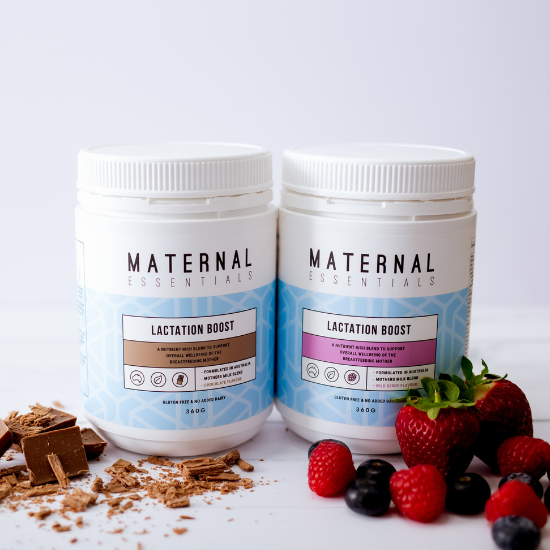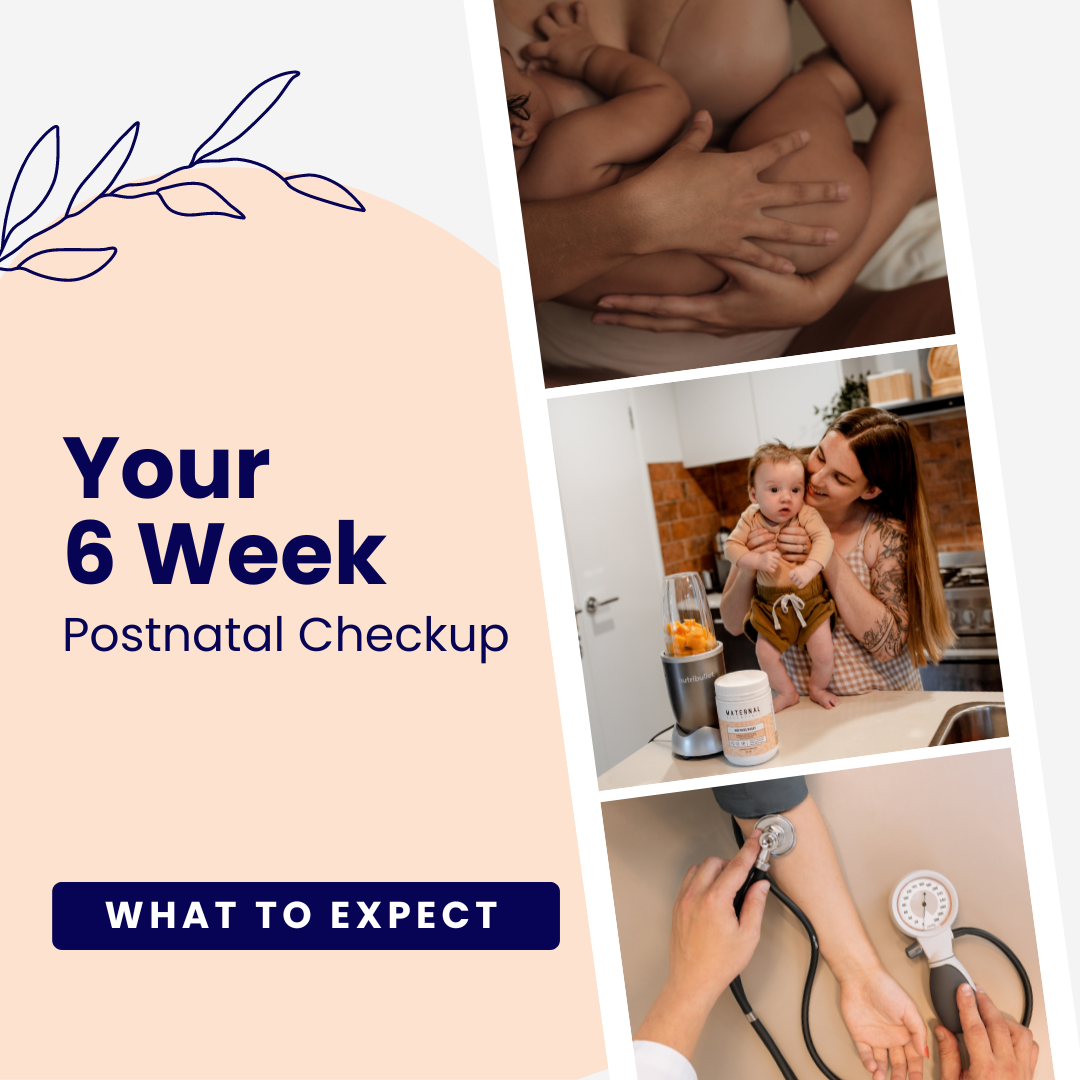The 6-week postpartum check is an essential appointment for new mums.
If you're in your third trimester or fully immersed in the newborn phase, let's explore what they do at the 6 week postpartum check up.
Assessing Physical Recovery after Birth
During the 6-week postpartum check your healthcare provider will assess your physical recovery after birth. This includes checking the healing of any incisions, either from an episiotomy or cesarean section as well as making sure your stitches (if you needed any) are healing well. Your GP or OBGYN will also discuss any concerns you may have about your physical recovery.
Evaluating Postpartum Mental Health
Aside from physical recovery, the 6-week postnatal is when screening for postnatal depression and anxiety occurs. Postnatal depression and anxiety affect 1 in 5 Australian Mothers and screening allows for proper support, referrals to support providers, a mental health care plan and medication (if indicated)
Monitoring Baby's Development
While the focus of the postnatal check is primarily on you, your newborn will also be looked over to assess their development and well-being. This may include checking the baby's growth, feeding habits, and overall health.
Addressing Any Postpartum Concerns
The 6-week postnatal check is the perfect time for you to raise any concerns or questions about your postpartum recovery, mental health and your baby. This appointment is an opportunity for open communication with your healthcare provider and a chance to seek guidance on any issues that may be concerning you.
Comprehensive Postpartum Blood Test
It is very important to ask your healthcare provider for a postnatal blood test at your 6-week appointment to check for nutrient deficiencies and your overall health. If there are any abnormalities in your results, then these can supported with medication, referral to a specialist and even specific postpartum supplements & dietary changes.
Common nutrient deficiencies seen at the 6-week postpartum check up include:
- Iron Deficiency
- Zinc Deficiency
- B12 Deficiency
- Altered Thyroid Function
- Elevated Blood Sugar Levels
- Elevated Liver Enzymes
Ask for these blood tests at your postpartum checkup:
Full Blood Count & E/LFT
A full blood count will give your health care provider a good indicator of how your body is going overall. Making sure you get your E/LFT (liver panel) alongside this help make sure your liver is functioning well, particularly as it is common for elevated liver enzymes and issues with your gall bladder during the first year postpartum.
Iron Studies & CRP
Shows how your body is utilising iron, how good your stores are and if your cells are actually able to use the iron! Iron is essential for energy, postpartum recovery and reducing fatigue. Iron deficiency in the postpartum period is also a risk factor in developing postpartum depression. Make sure to get the CRP (c- reactive protein) tested alongside your iron studies to rule out infection or inflammation, which can falsely elevate your ferritin levels.
TSH, T4, T3 (thyroid panel)
The thyroid can swing many ways during pregnancy, and during the postpartum period it can continue, increasing risk of hypothyroidism or postpartum thyroiditis. If your thyroid levels are not optimal this can cause anxiety, low mood, weight gain, brain fog, sensitivity to the cold, hair loss, poor sleep and sweating.

Vitamin D
Mums with low levels of vitamin D have been found to have an increased risk of postpartum depression and anxiety. If your levels are lower than 100, it would be a good idea to have a chat to your nutritionist about supplementing!
Zinc
Zinc deficiency can lead to postnatal anxiety, irritability and low progesterone. Zinc is also required to support your immune system, balance your blood sugar and ensure optimal postpartum thyroid health.
B12
Is critical in supporting iron absorption, nerve health, mental health and energy. If you are plant based or have had history of B12 deficiency, it is very important to check this level regularly.
If you are wanting further postpartum nutrition and recovery support, Meg, our Clinical Nutritionist offers 1:1 motherhood nutrition consultations and postpartum pathology reviews over zoom. Find out more here:


